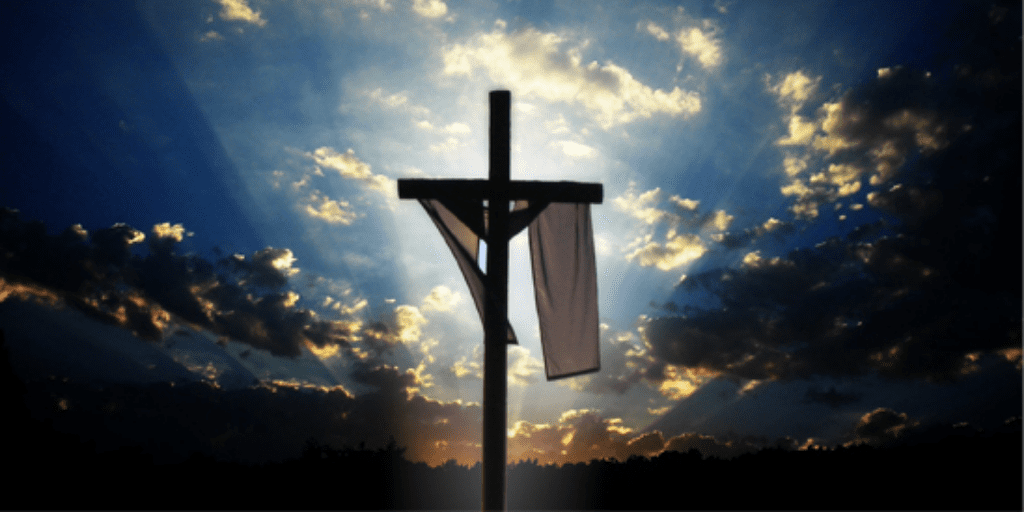It was not possible for Christ to be held by death (Acts 2:24)—he was resurrected! For us, that is everything! It means that God’s justice and wrath against us is satisfied. It means that Christ’s work is finished. It means that the results of sin—death—is defeated and that total forgiveness and absolvement is available to any who would put their faith, not in their own ability to obey, but in what Jesus has accomplished in our place.
This is Part 5 in our series “The Sinfulness of Sin.” Click below to view the others:
Our sin is ugly. There is no getting around that. It’s hard to think about our sin, even as Christians, it really is hard because the deeper we go, the closer we look, the uglier and uglier we become. When we think about the nature of sin and what sin actually is, and what it looks like, we can’t stop seeing it in ourselves. In fact, as we learn more about sin, our perception of it in ourselves is multiplied.
Reflect
But as hard a subject as this is, I hope these posts have been convicting for you. I know they have been for me. The truth of the matter is, it is necessary for us to see our sin for what it is, for its depth, for the rebellion that it is, and for that fact that all sin is utterly opposed to God Himself; when we see these things, we see more sharply the depth and wonder of His great mercy. We can theologically affirm God’s perfect, abundant mercy all day, but taking a long hard look at our sin makes us feel His mercy.
Think back on, or go back and read the last several posts for a moment. Bring to the forefront of your mind all your sins—sins of omission and commission, your desire to gratify the flesh; recall the assault that sin is upon God’s character, the inescapability of our sin nature, and our complete impotence to help ourselves. Meditate on all of these things and realize that God has given an answer, a solution, to this seemingly unsolvable problem.
If we look all the way back to the Old Testament, we’ll find the repetition of blood sacrifices to God. As foreign from our culture as this is, this is how sin was atoned for in those days (Lev. 17:11, Heb. 9:22). The wages of sin is death (Rom. 6:23), and therefore life is required for the forgiveness of sins. God’s justice must be satisfied. Obviously, animal sacrifices didn’t truly atone for people’s sins (Heb. 10:4), but what they did do was foreshadow and symbolize the perfect, ultimate, once for all atonement.
God’s Answer
This is God’s answer. Because no natural human being can keep God’s law, even in the slightest, God sent His only Begotten Son to become a real, flesh and blood man (Jn. 1:14, Heb. 2:14), so that he may fulfill the law on our behalf. Jesus was perfectly obedient—there was not a speck of sin to be found in him (1 Pe. 2:22, 1 Jn. 3:5).
In every place where we fail, he succeeded; where we inevitably and consistently fall, he stood up to the rigorous demands of God’s holy law. Jesus of Nazareth did what every single person fails to do—every one of his thoughts, words, and deeds were perfectly in line with the law. Knowing what we know about sin and how naturally it comes to us, consider how unfathomable this is! He underwent every temptation that we experience, and yet, he never sinned (Heb. 4:15). Not one time.
He Paid It All
All this isn’t even the best part for us. Jesus, although he was the only man in history who did not deserve God’s wrath, took on its fullness for our sake. Christ bore all of our sins, yes all of them (2 Cor. 5:21), and despite being truly, perfectly innocent, he was counted as a sinner. Jesus became that atoning sacrifice that the bulls and goats of the Old Testament pointed to. It is Jesus, his blood that actually takes away our sins because he paid the price for them. On this side of Heaven, we can’t even begin to wrap our minds around the weight of sinfulness that Christ bore for all of his people.
God, in His justice, could not let our sins go unpunished. He cannot simply turn a blind eye; He pours out His wrath on the Son. Jesus, just before he died declared himself God forsaken (Mt. 27:46). The wrath of God, the removal from all His blessedness, came onto Christ. The Father, in His holiness, could not even look upon the reproach that His Son had become. When we think of Christ on the cross, we often think of the physical torture he endured for us, but the spiritual pain he endured is beyond our capacity to understand.
However, Christ did not suffer eternally, the way that we deserve to. It was not possible for him to be held by death (Acts 2:24) – he was resurrected! For us, that is everything! It means that God’s justice and wrath against us is satisfied. It means that Christ’s work is finished. It means that the results of sin—death—is defeated and that total forgiveness and absolvement is available to any who would put their faith, not in their own ability to obey, but in what Jesus has accomplished in our place.
His Victory Is Our Victory
It also means that as Christians, we have victory over sin. Christ has given us the Holy Spirit to dwell in us and therefore we are a new creation, and by that power, we put to death our sin! Does that mean that as Christians we’ll be perfect? Of course not. But it does mean that we will continually, albeit slowly, look more and more like Christ. We no longer live to please ourselves, but we live to please him who saved us – because he saved us! Let us therefore strive for obedience, continually repent of our sin, and abide in Christ who did everything for us.
Luke Griffo is a member of leadership at Redeemer Church of South Hills in West Mifflin, PA. Click here for more RCSH Blog posts.
Become a fan of Redeemer Church of South Hills on Facebook, and follow Redeemer Church of South Hills on our YouTube Channel for more exclusive RCSH content.

